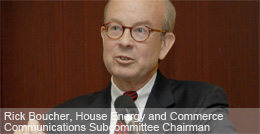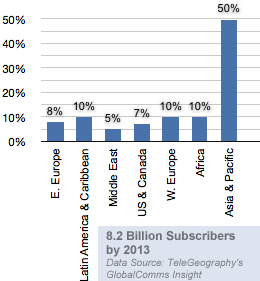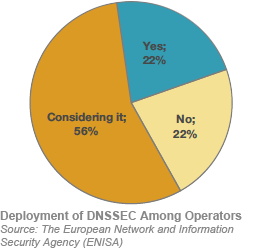

 In a speech today from the White House, President Obama declared that the United States' computers and digital networks are strategic national assets and that he will personally appoint a cybersecurity coordinator to oversee the effort to protect this critical infrastructure. more
In a speech today from the White House, President Obama declared that the United States' computers and digital networks are strategic national assets and that he will personally appoint a cybersecurity coordinator to oversee the effort to protect this critical infrastructure. more
 Rick Boucher, Chairman of the House Energy and Commerce Communications Subcommittee, will hold a hearing on June 4th to examine the future of U.S. government's relationship with ICANN. Tech Daily Dose of the National Journal reports: "Boucher has previously expressed interest in holding an ICANN hearing, particularly since a joint project agreement that has allowed Commerce Department oversight of ICANN is slated to sunset on Sept. 30 amid accountability and transparency concerns." more
Rick Boucher, Chairman of the House Energy and Commerce Communications Subcommittee, will hold a hearing on June 4th to examine the future of U.S. government's relationship with ICANN. Tech Daily Dose of the National Journal reports: "Boucher has previously expressed interest in holding an ICANN hearing, particularly since a joint project agreement that has allowed Commerce Department oversight of ICANN is slated to sunset on Sept. 30 amid accountability and transparency concerns." more
 When it comes to broadband subscriptions, the current global recession is merely a short-term phenomenon according to new research released by TeleGeography. The research group reports that "by the end of 2013 the number of broadband subscribers across the world will have grown by 72% to over 700 million, while wireless subscriptions will have grown by well over two billion, an increase of 60%." TeleGeography's GlobalComms Insight predicts that the Asia-Pacific region will continue to dominate the global market but only in terms of total subscription numbers -- the market value will have a different story. "In 2013 the region's 50% share of global subscribers will account for only 28% of global market value. Conversely, while the relative size and importance of the North American market continues to diminish, in 2013 its 7% of subscribers will still account for 23% of global market value." more
When it comes to broadband subscriptions, the current global recession is merely a short-term phenomenon according to new research released by TeleGeography. The research group reports that "by the end of 2013 the number of broadband subscribers across the world will have grown by 72% to over 700 million, while wireless subscriptions will have grown by well over two billion, an increase of 60%." TeleGeography's GlobalComms Insight predicts that the Asia-Pacific region will continue to dominate the global market but only in terms of total subscription numbers -- the market value will have a different story. "In 2013 the region's 50% share of global subscribers will account for only 28% of global market value. Conversely, while the relative size and importance of the North American market continues to diminish, in 2013 its 7% of subscribers will still account for 23% of global market value." more
 According to a recent survey conducted by the European Network and Information Security Agency (ENISA), 78% of service providers in Europe have plans to deploy DNSSEC within the next 3 years. On the other hand, the study also found 22% have no plans to deploy DNSSEC in the next 3 years. more
According to a recent survey conducted by the European Network and Information Security Agency (ENISA), 78% of service providers in Europe have plans to deploy DNSSEC within the next 3 years. On the other hand, the study also found 22% have no plans to deploy DNSSEC in the next 3 years. more
New research from the Anti-Phishing Working Group (APWG) has found that up to 81% of domain names used for phishing are legitimate domains that have been hacked. More specifically, out of the 30,454 phishing domains under observation, only 5,591 domain names (18.5%) were registered by phishers according to APWG. The remaining small percentage of the domains used in phishing belonged to subdomain resellers such as ISPs and other web-based services. more
 The American Registry for Internet Numbers (ARIN) has launched a comic book series to further help raise awareness for the adoption of IPv6 and other matters dealt by the organization. The comic books, called "Team ARIN", are fictionalized views of the organization, its processes, and the whole concept of Internet governance. "Though our heroes are fictional, the issues they face are very real," says ARIN. more
The American Registry for Internet Numbers (ARIN) has launched a comic book series to further help raise awareness for the adoption of IPv6 and other matters dealt by the organization. The comic books, called "Team ARIN", are fictionalized views of the organization, its processes, and the whole concept of Internet governance. "Though our heroes are fictional, the issues they face are very real," says ARIN. more
On behalf of the Federal CIO Council, US Office of Management and Budget (OMB) announced today the release of the "Planning Guide/Roadmap toward IPv6 Adoption within the US Government". This document defines the Federal Government's Internet Protocol version (IPv6) direction, building upon requirements set forth in OMB Memorandum 05-22. It was developed by the CIO Council's IPv6 Working Group, in partnership with the American Council on Technology / Industry Advisory Committee, in consultation with and review by the Federal CIO community. more
 Spam levels have increased by 5.1% since last month, reaching heights of 90.4%, according to latest report from Symantec's MessageLabs Intelligence... The majority of this increase in spam in May was comprised of messages with very little content other than a subject line and valid hyperlink, says the report. "Each hyperlink pointed to a different active profile on one of a number of major social networking environments. The profiles were likely created using random names and automated CAPTCHA-breaking tools. Moreover, the emails were sent from valid webmail hosting providers, which means they were not spoofed, as has been the case in the past for these types of domains." more
Spam levels have increased by 5.1% since last month, reaching heights of 90.4%, according to latest report from Symantec's MessageLabs Intelligence... The majority of this increase in spam in May was comprised of messages with very little content other than a subject line and valid hyperlink, says the report. "Each hyperlink pointed to a different active profile on one of a number of major social networking environments. The profiles were likely created using random names and automated CAPTCHA-breaking tools. Moreover, the emails were sent from valid webmail hosting providers, which means they were not spoofed, as has been the case in the past for these types of domains." more
According to Shanghai Daily, there has been an "organized Internet attack on Tuesday night which caused serious congestion in several provinces [in China] and left millions of users unable to gain access to the Internet." This is the first time the regulator has published news about an investigation into an online attack in China within 24 hours, says Shanghai Daily. ..."It was an attack on DNS (Domain Name System) and the carriers and related firms should do more back-up to avoid similar incidents," the ministry said in a statement. more
During a presentation at the Interop Conference currently ongoing in Los Vegas, Mike Repass, Product Manager at Google, informed the audience that a new cloud storage service will be rolled out by Google within weeks. The role out is part of Google's expansion of its AppEngine platform which is said to offer similar security infrastructure as Gmail and Google Apps. "[T]he app partitioning and isolation are the same best of breed technology approaches that Google is developing for the rest of its customer base," Repass said. more
According to Data from TeleGeography's Wholesale Bandwidth Pricing Database, there are stark price differences around the globe for companies with large international bandwidth requirements. "For example, the median price of a 2 Mbps E-1 circuit between London and Johannesburg in Q4 2008 was nearly $15,000. For the same price, a bandwidth buyer could lease a 10 Gbps wavelength -- 500 times the capacity of an E-1 -- between London and New York." more
 The RIPE NCC today announced the launch of the IPv6 Act Now! website. RIPE NCC, a Regional Internet Registry (RIR) for Europe, the Middle East and parts of Central Asia, calls the website a one-stop destination on IPv6 where everyone can understand and provide a variety of useful information aimed at promoting the global adoption of IPv6. "The site is for anyone with an interest in IPv6, including network engineers, company directors, law enforcement agencies, government representatives and civil society." more
The RIPE NCC today announced the launch of the IPv6 Act Now! website. RIPE NCC, a Regional Internet Registry (RIR) for Europe, the Middle East and parts of Central Asia, calls the website a one-stop destination on IPv6 where everyone can understand and provide a variety of useful information aimed at promoting the global adoption of IPv6. "The site is for anyone with an interest in IPv6, including network engineers, company directors, law enforcement agencies, government representatives and civil society." more
 A recent paper released by by Urs Hölzle and Luiz André Barroso of Google's infrastructure design and operations team provides an introduction into today's high scale computing along with factors influencing their design, operation, and cost structure. From the abstract: "As computation continues to move into the cloud, the computing platform of interest no longer resembles a pizza box or a refrigerator, but a warehouse full of computers. These new large datacenters are quite different from traditional hosting facilities of earlier times and cannot be viewed simply as a collection of co-located servers..." more
A recent paper released by by Urs Hölzle and Luiz André Barroso of Google's infrastructure design and operations team provides an introduction into today's high scale computing along with factors influencing their design, operation, and cost structure. From the abstract: "As computation continues to move into the cloud, the computing platform of interest no longer resembles a pizza box or a refrigerator, but a warehouse full of computers. These new large datacenters are quite different from traditional hosting facilities of earlier times and cannot be viewed simply as a collection of co-located servers..." more
 In a video posted on her website this morning, Viviane Reding, EU Commissioner for Information Society and Media, has called for greater transparency and accountability in Internet Governance. She outlines a new Internet Governance model which includes a fully private and accountable ICANN, accompanied by an independent judicial body, as well as a "G12 for Internet Governance" -- a multilateral forum for governments to discuss general internet governance policy and security issues... more
In a video posted on her website this morning, Viviane Reding, EU Commissioner for Information Society and Media, has called for greater transparency and accountability in Internet Governance. She outlines a new Internet Governance model which includes a fully private and accountable ICANN, accompanied by an independent judicial body, as well as a "G12 for Internet Governance" -- a multilateral forum for governments to discuss general internet governance policy and security issues... more
 A recent study suggests Rustock and Xarvester malware provided the most efficient spambot code, enabling individual zombie computers to send 600,000 spam messages each over a 24 hour period. "Over the past few years, botnets have revolutionized the spam industry and pushed spam volumes to epidemic proportions despite the best efforts of law enforcement and the computer security industry. Our intention was to better understand the origins of spam, and the malware that drives it," said Phil Hay, senior threat analyst, TRACElabs (a research arm of security company Marshal8e6)... more
A recent study suggests Rustock and Xarvester malware provided the most efficient spambot code, enabling individual zombie computers to send 600,000 spam messages each over a 24 hour period. "Over the past few years, botnets have revolutionized the spam industry and pushed spam volumes to epidemic proportions despite the best efforts of law enforcement and the computer security industry. Our intention was to better understand the origins of spam, and the malware that drives it," said Phil Hay, senior threat analyst, TRACElabs (a research arm of security company Marshal8e6)... more
Sponsored byDNIB.com

Sponsored byCSC

Sponsored byVerisign

Sponsored byWhoisXML API

Sponsored byRadix

Sponsored byIPv4.Global

Sponsored byVerisign
